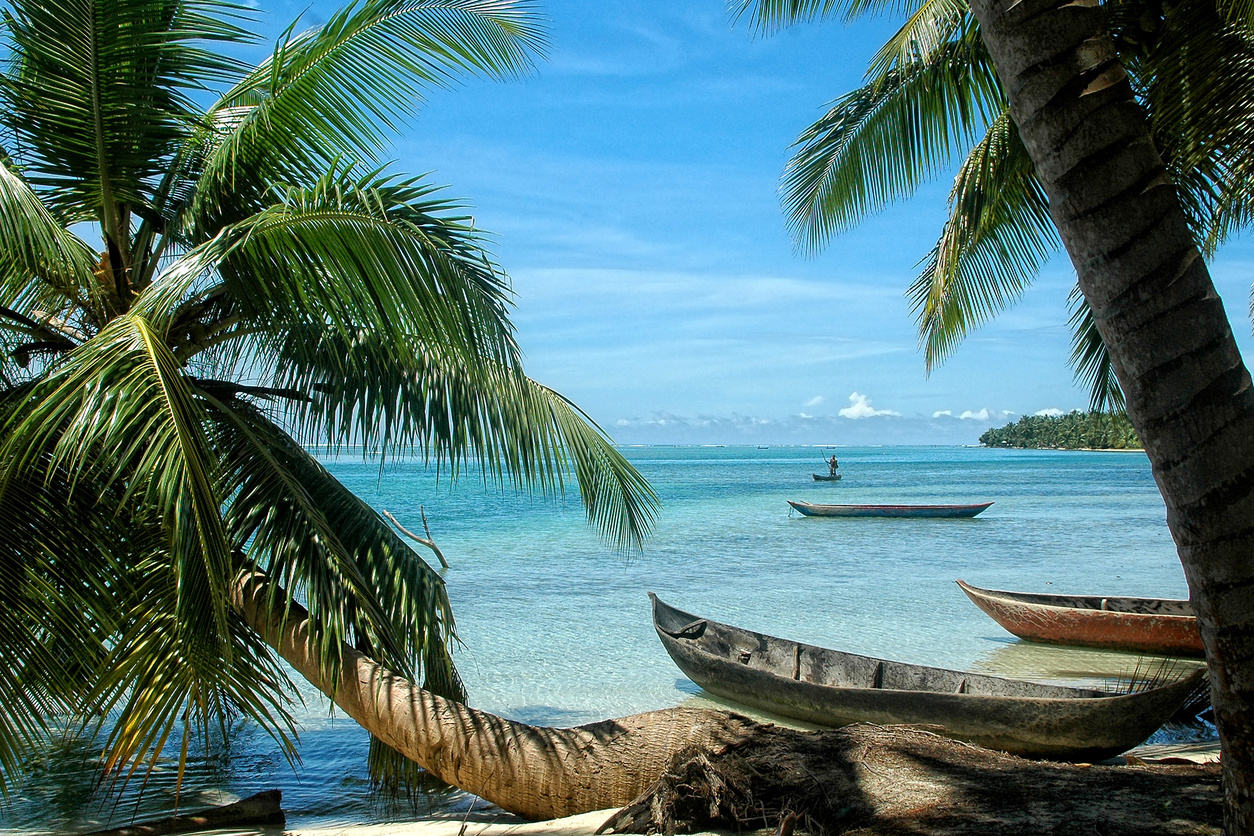Ile Sainte Marie Is a Real-Life Pirate Island

Although Ile Sainte Marie is only a very small island off the east coast of Madagascar, it has a fascinating history imbued with tales of pirates. Also known as Nosy Boraha, Nosy Mbavy, or Saint Mary’s island, it has a pirate graveyard and is surrounded by many shipwrecks. It features in many great legends and is a great location for exploration.

The European name Sainte Marie was acquired in the 16th century from Portuguese sailors. Later, when French settlers tried to colonize the island, they simply translated the existing name, which in English is Saint Mary’s Island. According to Lonely Planet, one of its Malagasy names, Nosy Boraha, has a few different stories regarding its origin. Some believe that it means “Island of Abraham” and that perhaps Jewish or Arabic settlers reached it before the Portuguese. Others believe that it comes from the name of a local fisherman who, similarly to the biblical story, was prevented from drowning by a whale.

Others also believe that because the second local name of the island is Nosy Mbavy, which means “the women’s island,” it refers to a legend where a woman took pity on a man who was shipwrecked on the island and hid him from the other women who were chasing him. According to Travel Madagascar, he then blessed the woman and a freshwater spring came into being on her property.

From the mid-17th century, Ile Sainte Marie was a center of piracy in the Indian Ocean. According to the Mother Nature Network, merchants returning to Europe from South and East Asia used the area as a major shipping channel, and the island was in the perfect position from which to attack. Furthermore, it had many locations along its coastline where pirates could rest and repair their ships.

Many pirates are known to have used the island. One of them, Thomas White, even married a princess from the east coast of Madagascar and began a ruling dynasty. Their son, Ratsimilaho, united Madagascar’s coastal tribes under his kingdom. It is also said that it is because Ratsimilaho’s daughter, a princess, fell in love with a French soldier that she submitted to French rule on the island in the mid-18th century. Many inhabitants still claim to be descendants of the pirates who lived there in the 17th and 18th centuries.

Another famous pirate who stayed at Ile Sainte Marie is William Kidd. He was a Scottish privateer, and when he was commissioned to protect English ships from pirates in the Red Sea, legend has it that he turned to piracy instead as it was more profitable. He always denied these charges and there is some doubt that he actually did turn to piracy despite having been hanged for it in London. His most famous ship, the Adventure Galley, is thought to still be in the water off the coast of Ile Sainte Marie, and many have looked for some of his treasure.

According to the BBC, a 110-pound bar of metal was found off the coast of the island in 2015. Although it was originally thought to be silver and therefore part of William Kidd’s treasure, it was later found by a technical team from Unesco to be 95% lead and unlikely to have been Kidd’s loot.
Having been home to an estimated 1,000 pirates at one time, Ile Sainte Marie also contains a legitimate pirate cemetery that attracts many visitors. Traditional pirate emblems such as skulls and crossbones and swords can be found on the gravestones. The pirate republic of Libertatia was also rumored to be in the area, so, if the republic actually existed, the island is a likely candidate for its location.

With so much fascinating history, a good dose of legend, and beautiful beaches, Ile Sainte Marie is definitely a must-see for adventure seekers. William Kidd’s treasure, or other pirate treasure, might still be out there just waiting to be found. Even if one is not so lucky, there are still shipwrecks and the cemetery to explore as well as lemurs, whales, and much other wildlife to view. The beaches are also said to be some of the best that Madagascar has to offer.
